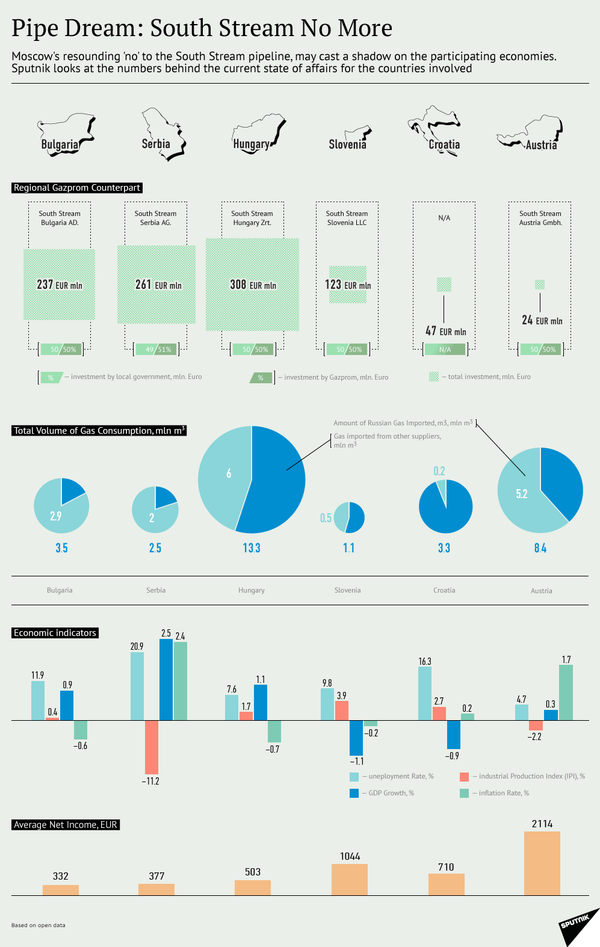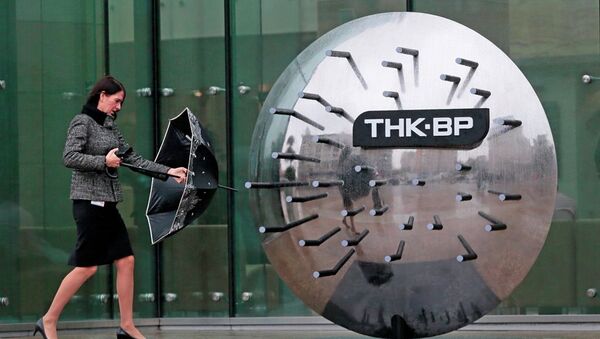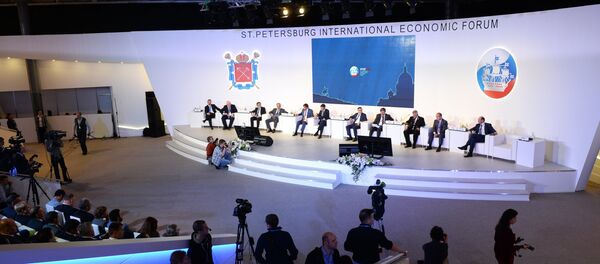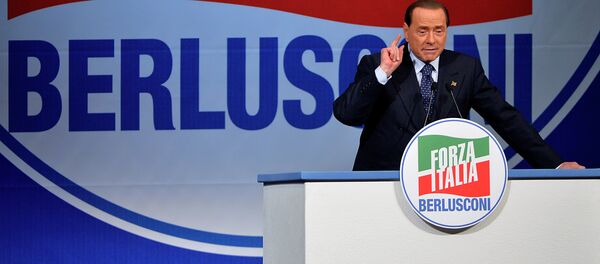Italy, the "weak link", has lost South Stream, courtesy of the EU confrontational policy with Russia. And Italy's farmers have been badly affected by the embargo Russia enacted in July 2014 and extended, early this month, in retaliation to EU sanctions.
And yet, "Britain feeds a narrative that sees Rome as anxious to safeguard its business interests with Moscow," Paolo Valentino — who recently interviewed President Putin in Moscow for the Corriere newspaper — explains, before taking a stab at British hypocrisy.
On the surface, "[the] British government is harsh in demanding sanctions against Russia," but this harshness gives way to a more pragmatic, business-is-business approach whenever British economic interests are involved. The BP-Rosfnet deal is a case in point.
Circumventing Sanctions: Cash and Joint-Venture
On June 19 BP had paid Rosfnet — Russia's largest oil company — $750 million cash for a 20% stake in Taas-Yuryakh, an East Siberian oil producer. The deal was signed during the Saint Petersburg International Economic Forum (SPIEF).
This was not only "the first contract of its size between western investors and a Russian group since the beginning of [the] sanctions," points out Valentino. By paying cash, BP allowed Rosfnet to circumvent sanctions denying Russian companies access to western capital.
What's more, "BP and Rosfnet will jointly explore two new areas in Western Siberia and Yenisey-Khatanga." This means that sanctions preventing Rosneft from acquiring western technology will be circumvented by BP.
And it is not just BP either. Another example, the Corriere point out "is the sale, again by Rosfnet, of a 29% share of the Taas-Yuryakh oilfield to Skyland Petroleum, a mysterious company registered only in January this year in the Cayman Islands by, surprise-surprise, another British company, Vazon Energy, owned by David Robson."
Paying the Sanctions Lip Service
According to Sergey Pikin, Director of the Energy Development Foundation:
"BP obtained the permit to sign the deal with Rosfnet from the British government."
The same government, which has often criticized Italy for being "soft" on Russia.
A government that "does not comment on private corporations," Valentino explains somewhat ironically, "limits itself to ensuring that the contracts are compliant with the sanctions regime."
David Campbell, CEO of BP Russia, recently announced:
"We will continue to search for attractive investment opportunities to develop Russian resources […] while respecting international sanctions."
Italy Feels cheated
The St Petersburg International Economic Forum had already seen "the signing of a memorandum for the realization of two additional lines for the North Stream between Gazprom, Germany's E.ON, Austria's OMV and Anglo-Dutch Shell," Valentino recalls.
This was "a real surprise after Gazprom CEO, Alexey Miller, announced in January that no new pipelines were planned because of political tensions in Europe."
So, it is not just BP that keeps business channels open with Russia? Other big companies do that too. However, "it is London," Valentino says, "that has been sternly warning against excessive dependency on Russian gas, repeatedly attacking the South Stream project which would have brought Russian gas to Europe via Greece and Italy."

Following repeated attacks by the EU, the US and the British government, Gazprom eventually replaced South Stream, in which Italy had a major stake, with Turk Stream. Thus Italy's Saipem, of the ENI's group, lost its contract to lay down the South Stream pipelines under the Black Sea bed.
Now, with North Stream about to double its carrying capacity, and BP to reap the fruits of its joint-venture with Rosfnet, Italy begins to feel cheated.
In the City It's Business as Usual
If we move from energy to other business sectors, British attitudes towards sanctions do not change. A measure of double standards is always detectable.
Last year, when pressure began to mount on France not to deliver the Mistral warships, and the UK was — together with Poland and the Baltic countries — pushing for an arms embargo on Russia, "Paris," wrote the Financial Times, "argued that an arms embargo would unfairly hit France while leaving other EU economies relatively unscathed."
FT quoted a French official who said that:
"UK sanctions on Russian business interests in London would be much more important financially and economically against Moscow."
A year later, the situation is the same: "The City […] actually protects dozens of Russian oligarchs who have invested their wealth in London," writes the Corriere.
Ian Lucas, UK shadow Labour minister is also quoted in the Corriere as saying:
"Cameron says one thing and does another one. If he were coherent, he would attack the Russian capital that thrives in London."
Good, Old Advice
"Don't approve the sanctions," Berlusconi urged Italy's new Prime Minister Matteo Renzi, as early as May 2014. "And if you have to approve them, then do not respect them." It was sound, if cunning advice amid the pointlessness of EU sanctions.
Apparently somebody was listening. Though not in Rome.





